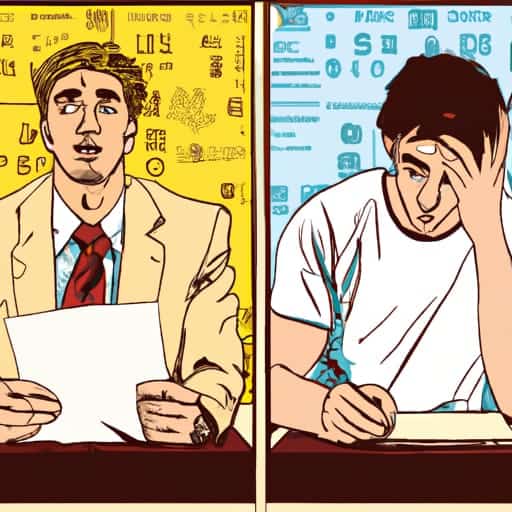11 Things You Should Know About Your Anxiety
Introduction
Anxiety is a normal part of life and is a natural response to potential danger or stress. It can help us prepare for challenges, stay focused, and avoid risks. However, when feelings of anxiety become excessive or disruptive, it can lead to an anxiety disorder. Anxiety disorders are the most common mental health condition in the United States and affect millions of people each year.
It’s important to recognize the difference between occasional anxiety and an anxiety disorder, as the latter can significantly impact daily life and make it difficult to perform everyday activities, including social situations, work, and physical activity.
Anxiety disorders can be treated and managed with the right treatment and support, which may include medication, talk therapy, stress management techniques, and lifestyle changes.
Seeking professional help is an important step in addressing anxiety disorders and improving overall well-being.
7 Types of Anxiety Disorders
There are several different types of anxiety disorders, each with their unique symptoms and characteristics. These include:
- Generalized Anxiety Disorder (GAD) – characterized by persistent, excessive worry about a range of everyday topics such as work, health, and relationships.
- Panic Disorder – characterized by sudden and intense periods of fear, known as panic attacks, often accompanied by physical symptoms such as heart palpitations, sweating, and shortness of breath.
- Social Anxiety Disorder – characterized by intense fear and avoidance of social situations, such as public speaking or meeting new people.
- Specific Phobias – characterized by an intense fear or anxiety about a specific object or situation, such as spiders, heights, or flying.
- Separation Anxiety Disorder – characterized by excessive fear or anxiety when separated from a loved one or attachment figure.
- Selective Mutism – characterized by an inability to speak in certain situations, despite being able to speak in others.
- Obsessive-Compulsive Disorder (OCD) – characterized by recurrent, intrusive thoughts or images (obsessions) that cause significant anxiety, as well as repetitive behaviors or mental acts (compulsions) performed to alleviate the anxiety.
Each anxiety disorder is unique in its symptoms, and while some symptoms may overlap, they differ in terms of the types of situations or objects that trigger anxiety, the duration and frequency of anxiety symptoms, and the severity of the anxiety experienced. Understanding the specific characteristics of each anxiety disorder is important for effective diagnosis and treatment. Treatment can include medication, therapy, or a combination of both. If you suspect that you or a loved one may be experiencing an anxiety disorder, it’s important to seek professional help to receive an accurate diagnosis and develop an appropriate treatment plan.
Symptoms of Anxiety
Anxiety can cause a range of physical symptoms, such as chest pain, heart palpitations, shortness of breath, sweating, and digestive issues. In addition to these physical symptoms, anxiety can also cause changes in appetite, sleep patterns, and energy levels. These symptoms can be distressing and can impact a person’s daily life.
In addition to physical symptoms, anxiety can also cause mental symptoms. Excessive worry is a common symptom of anxiety and can be unrealistic or disproportionate to the situation at hand. Anxious thoughts, such as worrying about the future or potential negative outcomes, are also common. Negative thoughts, such as self-criticism or negative self-talk, can also contribute to anxiety. These mental symptoms can be distressing and can lead to further anxiety, creating a cycle of worry and negative thoughts.
Panic Attacks and Anxiety Attacks
Panic attacks are a common symptom of anxiety disorders and can be frightening and overwhelming. A panic attack is an episode of sudden and intense fear or anxiety that usually lasts for several minutes, although the symptoms can sometimes persist for longer. Panic attacks can be triggered by a variety of situations, such as being in a crowded space or experiencing a traumatic event. Panic attacks are often unexpected and can occur even in situations where a person does not typically experience anxiety.
Panic attacks are related to anxiety disorders, such as panic disorder, generalized anxiety disorder, and social anxiety disorder. They can also be a symptom of post-traumatic stress disorder (PTSD) and other mental health conditions.
The symptoms of a panic attack can vary but may include episodes of sudden feelings of intense anxiety, heart palpitations, chest pain, sweating, trembling, shortness of breath, and fear of potential danger. Other symptoms may include dizziness or lightheadedness, hot or cold flashes, and a feeling of being detached from reality. Panic attacks can be very distressing and can interfere
Learn The Causes of Anxiety
Environmental factors, life experiences, and traumatic events can contribute to the development or exacerbation of anxiety symptoms. For example, living in a high-stress environment, such as a violent or unstable home, can increase a person’s risk of developing anxiety. Traumatic events, such as abuse, neglect, or exposure to violence, can also contribute to the development of anxiety disorders. Additionally, life experiences such as the loss of a loved one, financial stress, or relationship problems can trigger or exacerbate anxiety symptoms.
Physical conditions can also contribute to anxiety. For example, heart disease and other cardiovascular conditions have been linked to anxiety, as well as nervous system disorders such as Parkinson’s disease and multiple sclerosis. Chronic pain, hormonal imbalances, and chronic illness can also contribute to the development of anxiety disorders.
While environmental and physical factors can contribute to the development or exacerbation of anxiety, it’s important to note that anxiety disorders are complex and have multiple causes. Biological factors, such as genetics and brain chemistry, can also contribute to the development of anxiety disorders.
Treatment Options
There are several different treatment options available for anxiety disorders, and the most effective approach will depend on the type of anxiety disorder and the individual’s specific symptoms and needs. Treatment plans for anxiety disorders are often developed in collaboration with a healthcare provider or mental health specialist.
One of the most common treatment options for anxiety disorders is talk therapy, which involves working with a therapist or counselor to address the underlying thoughts, emotions, and behaviors that contribute to anxiety. Cognitive-behavioral therapy (CBT) is a specific type of talk therapy that has been shown to be effective in treating anxiety disorders. CBT helps individuals identify and change negative patterns of thinking and behavior that contribute to anxiety.
Medication is another treatment option for anxiety disorders, and can be used alone or in combination with talk therapy. Anti-anxiety medications, such as benzodiazepines, are often used to provide short-term relief of anxiety symptoms, while selective serotonin reuptake inhibitors (SSRIs) and other antidepressants can be used to manage symptoms over the long term.
Stress management techniques, such as deep breathing, meditation, and yoga, can also be effective in managing anxiety symptoms. Lifestyle changes, such as regular exercise, a healthy diet, and good sleep hygiene, can also contribute to overall well-being and help manage anxiety.
Treatment plans for anxiety disorders should be tailored to the individual’s specific needs and symptoms, and should be developed in collaboration with a healthcare provider or mental health specialist. This may involve a combination of different treatment options, including talk therapy, medication, stress management, and lifestyle changes. With the right treatment and support, it is possible to manage anxiety and improve overall well-being.
People Need Professional Sometimes
Seeking professional help for anxiety disorders is important for several reasons. First, a professional can accurately diagnose the type and severity of the anxiety disorder and create an appropriate treatment plan. Second, a professional can provide a safe and supportive environment for individuals to discuss their anxiety symptoms and develop coping strategies. Finally, a professional can provide ongoing support and help to manage symptoms and prevent relapse.
Different types of mental health professionals can provide treatment for anxiety disorders, including psychiatrists, psychologists, licensed therapists, and counselors. It’s important to choose a mental health professional who has experience working with anxiety disorders and who makes you feel comfortable and supported.
To find a mental health professional, individuals can ask for recommendations from their primary care doctor, family and friends, or a local mental health clinic. Online directories and referral services can also be helpful in finding a mental health professional.
In addition to professional help, support groups and social support from family and friends can be valuable in managing anxiety disorders. Support groups provide a safe and supportive environment for individuals to connect with others who have similar experiences and can provide encouragement and practical advice. Family and friends can also provide emotional support and practical help, such as assisting with transportation or childcare.
Overall, seeking professional help and social support is essential in managing anxiety disorders. By working with a mental health professional and connecting with support groups and loved ones, individuals can develop coping strategies, manage symptoms, and improve their overall well-being.
anxiety Triggers and Worry
Anxiety can have a significant impact on daily life, making it difficult to perform everyday activities, including social situations, work, and physical activity. Individuals with anxiety disorders may avoid situations or activities that trigger anxiety, which can lead to social isolation, decreased productivity, and limited opportunities for personal growth.
Anxiety can also have a negative impact on both mental and physical health. In addition to the physical symptoms associated with anxiety, such as chest pain, heart palpitations, and shortness of breath, anxiety can also lead to a range of mental health issues, such as depression, substance abuse, and sleep disturbances. Chronic anxiety can also contribute to the development of other mental health disorders, such as post-traumatic stress disorder (PTSD) and obsessive-compulsive disorder (OCD).
Anxiety disorders can also have a negative impact on physical health. The chronic stress associated with anxiety can lead to a range of physical health issues, such as high blood pressure, heart disease, and digestive issues.
Stigma, Mental Health and Social Media
Stigma surrounding mental illness can have a significant impact on people with anxiety disorders. Negative attitudes and beliefs about mental illness can lead to feelings of shame, embarrassment, and isolation for those who experience anxiety symptoms. This can make it more difficult for individuals to seek help and support, and can exacerbate symptoms by preventing individuals from accessing effective treatment.
Social media can also contribute to anxiety and other mental health issues. Social media can create feelings of pressure to present a perfect image or “curated life,” which can be difficult to maintain and can lead to feelings of inadequacy or anxiety. Social media can also expose individuals to negative news or harmful content, which can trigger anxiety symptoms.
One tip is to use social media in a healthy and balanced way to minimize its potential impact on mental health. This can include taking breaks from social media, limiting exposure to negative content, and being mindful of the impact of social media on self-esteem and anxiety levels.
Education and awareness are important in reducing stigma surrounding mental illness and promoting greater understanding and acceptance of those who experience anxiety and other mental health conditions. By creating a more supportive and understanding environment, individuals with anxiety disorders can feel more comfortable seeking help and support, and can improve their overall well-being.
Things People Can Do To Help Themselves (like sleep)
Self-help strategies can be valuable in managing anxiety symptoms and improving overall well-being. These are things you do to find ways to soothe your anxiety.
Here are some tips:
- Deep breathing exercises: Deep breathing exercises can help to reduce anxiety symptoms by slowing down the heart rate and calming the body.
- Exercise: Regular exercise can help to reduce anxiety and improve overall physical and mental health.
- A healthy diet: Eating a balanced diet that is rich in fruits, vegetables, whole grains, and lean protein can help to support physical and mental health.
- Getting enough sleep: Adequate sleep is essential for physical and mental health and can help to reduce anxiety symptoms.
- Stress management: Developing stress management techniques, such as meditation, yoga, or mindfulness, can help to reduce stress and anxiety.
In addition to self-help strategies, it’s important learn what to do to manage anxious feelings in everyday situations. This can include developing a plan for managing anxiety symptoms in high-stress situations, such as public speaking or air travel, and identifying triggers that can exacerbate anxiety symptoms. Practicing relaxation techniques, such as deep breathing, can also be helpful in managing anxious feelings in everyday situations.
While self-help strategies can be valuable in managing anxiety symptoms, it’s important to seek professional help if needed. If self-help strategies are not effective in managing anxiety symptoms, or if symptoms are interfering with daily life, it may be necessary to seek professional help from a healthcare provider or mental health specialist.
Conclusion
If you’re struggling with anxiety, you’re not alone. It’s a common human experience that can impact anyone, from kids to teens to adults.
One’s mind can be a powerful tool, and if you’re not careful, your thoughts and actions could worsen anxiety. That’s why it’s important to learn how to manage anxiety and take care of your mental health. You may want to talk to your healthcare provider or a mental health professional to understand more about anxiety and develop a treatment plan.
Additionally, there are things you can do at home to help manage anxiety, such as deep breathing, exercise, and stress management techniques. It’s important to remember that everyone’s experience with anxiety is unique, and what works for one person may not work for another.
Psychology and medical professionals can provide guidance and support in managing anxiety, so don’t hesitate to reach out for help. Get medically reviewed!
Let’s work together to break the stigma surrounding mental health and support one another in managing anxiety and improving our overall well-being.
Don’t be afraid to reach out for help and support, as you deserve to live a happy and healthy life.
Related Articles on This Blog
Can Sinus Infection Cause Anxiety Attacks
Is Teeth Chattering A Sign of Anxiety? Understanding Your Symptoms
Is Hyperfixation a symptom of anxiety?







